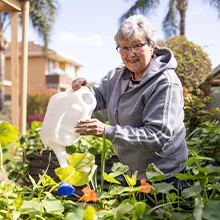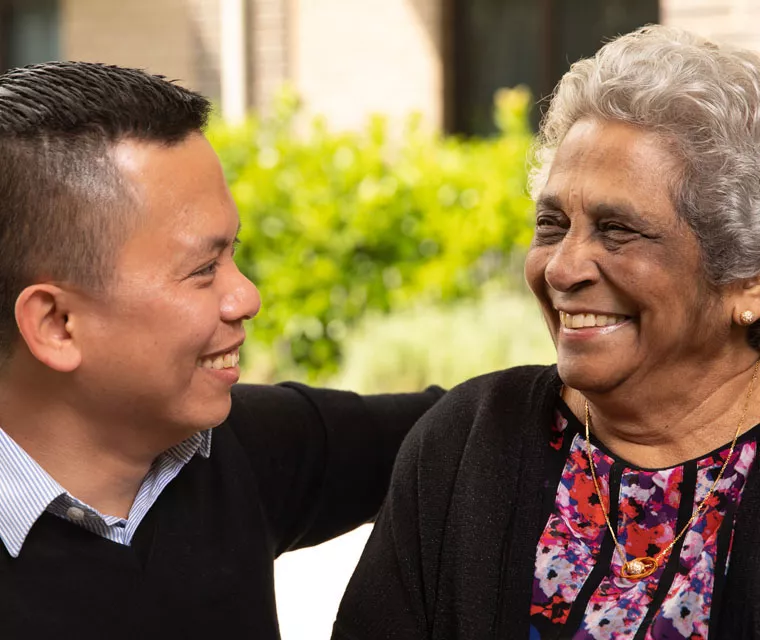
Aged Care
Services
We believe human connection is at the heart of wellbeing. As caregivers, our role is to support you in living the life you choose, and we know that how you feel while in our care truly matters. That’s why our aged care services focus on your clinical, social, and spiritual wellbeing.
Our dedicated team takes time to understand your individual needs and preferences, supporting you in making choices that reflect your values. We prioritise enabling participation in the things that matter to you and believe maintaining community connections is essential to wellbeing. We strive to create environments where you feel safe, secure, and valued—where you can live with love, purpose, and a sense of belonging. This philosophy extends to the design of our indoor and outdoor living spaces, as well as our memory care neighbourhoods.
Providing high-quality clinical care is fundamental to our approach. Each Care Community has a registered nurse on every shift, supported by a diverse team of carers and partnerships with primary and allied health professionals to ensure your health needs are consistently met. This includes physiotherapy, pharmacy, podiatry, optometry and dental.
Nutrition and lifestyle are also key to wellbeing. Every Care Community includes a qualified chef who prepares fresh, nutritious meals daily. We offer access to a wide range of lifestyle services, including:
- Hairdressing
- Optional outings and events
- Indoor and outdoor areas for socialising and relaxing
- Activities such as cards, craft, art, quizzes, bingo, gardening, men’s shed, BBQs, concerts, theme days, and cultural events
We’re here to support you in living a life filled with dignity, connection, and joy.
Our residential aged care services

Residential Aged Care
When you move into one of our Care Communities we strive to help you feel at home every day. Each one of our homes is fully accredited by the Australian Aged Care Quality Commission and has a registered nurse on every shift, every day and night.
Learn more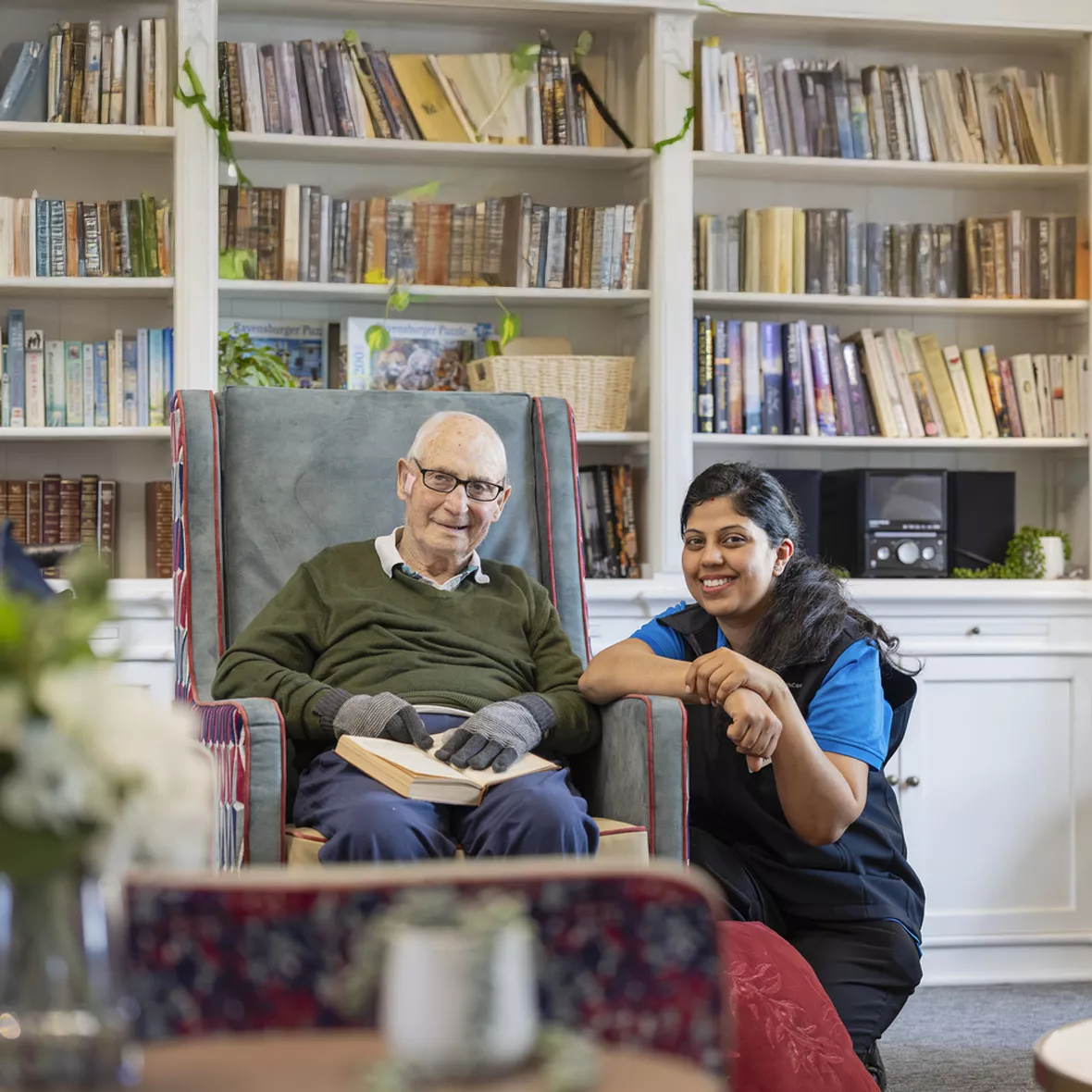
Dementia care
Every individual living with dementia will have different needs and preferences. Our carers endeavour to build connected relationships with each resident so that we can deliver the right care for your clinical, social and spiritual needs.
Learn more
Respite
We understand that everyone caring for someone needs a break at times. We provide short and long-term respite care, to give carers some flexibility to take a break or attend to personal needs and commitments.
Learn more about Respite Care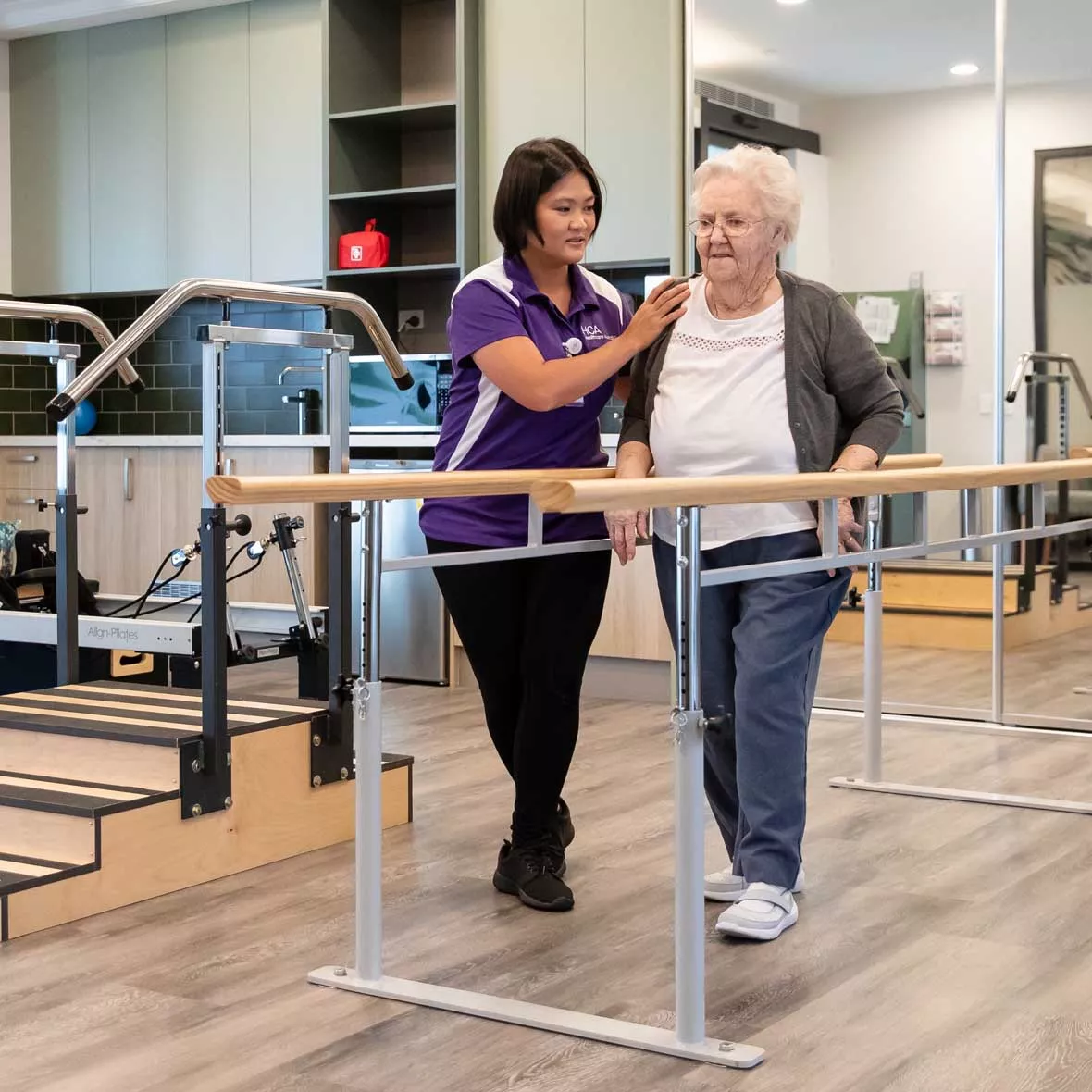
Wellness Centres and Reablement
We care deeply about bringing positivity and possibility into our elders’ lives. Our Wellness Centres promote rehabilitation and reablement, offering evidence-based treatment programs and individualised services to improve independence, quality of life and emotional and physical well-being.
Learn more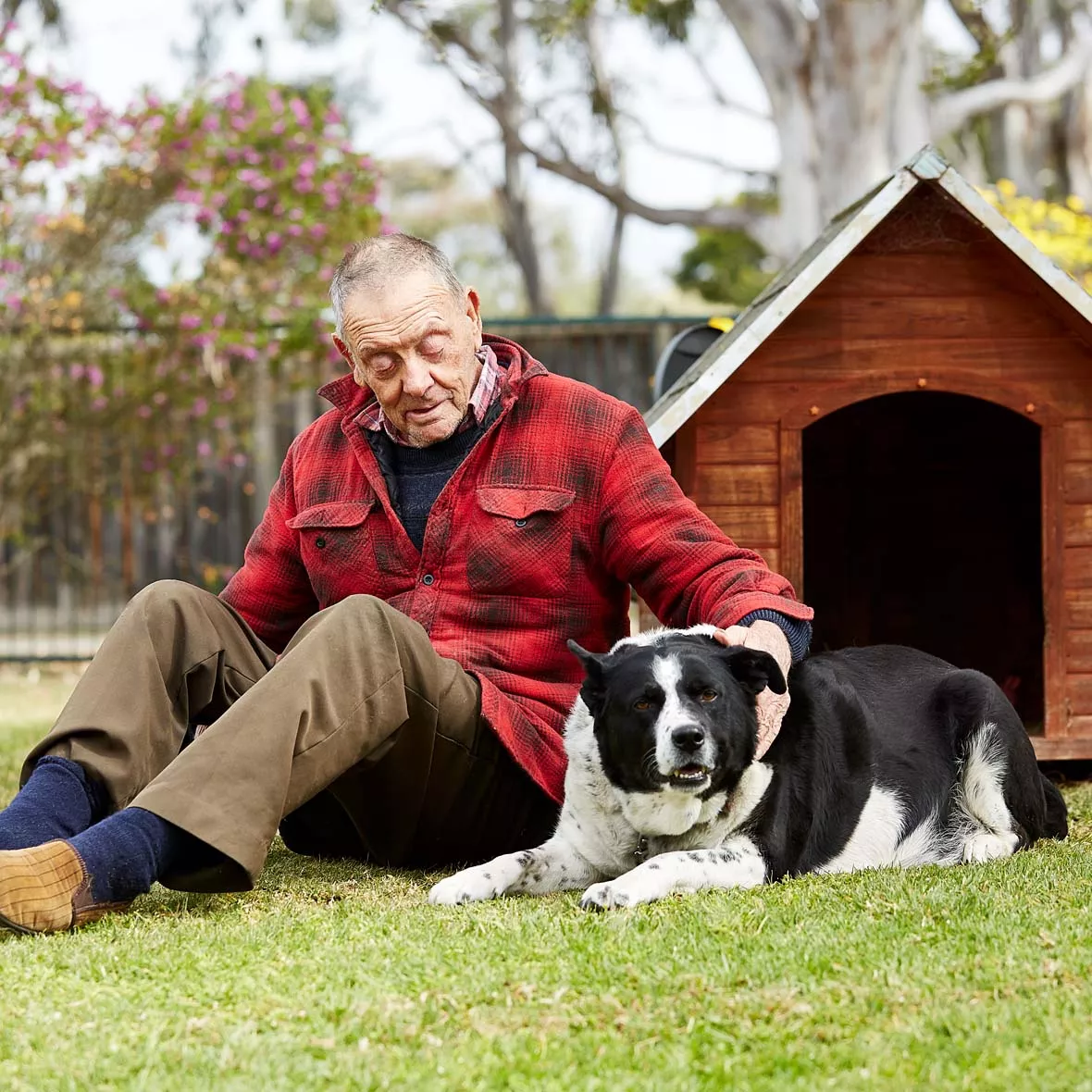
Palliative care
Palliative care is care that helps people live their life as fully and comfortably as possible when living with a life-limiting or terminal illness. This type of care may continue for an extended period of time and aims to support physical, emotional, social and spiritual needs.
End-of-life care is the care provided in the last few hours, days or weeks of life.
Learn moreExplore our Care Communities
Find a Care CommunityCommonly asked questions about our Aged Care Services
-
Once you have received your ACAT assessment, you can begin applying to as many Care Communities as you wish, but once you accept a place, it’s important that you let the other homes know that you no longer require their services.
Visit our 5-Step Guide for further information
-
Visiting a range of Care Communities is often one of the best ways to decide which home suits your needs. To help you assess the suitability of the homes you visit, we have attached a short checklist at the end of this section. This will help you assess each home and ask some important questions to the providers you meet with.
-
The Department of Human Services (DHS) is the body that determines your financial situation. To do this, DHS conducts a Combined Income and Assets Assessment, which is a form that you need to complete and submit to the government.
-
Respite care is short-term care, including day respite, to provide your caregivers a break from caring when they need it. It can be planned or on an emergency basis and can be used for up to 63 days in a financial year. Many care homes offer day respite, which offers caregivers some flexibility to attend to personal needs and obligations as they arise.
-
The Combined Income and Assets Assessment form (SA457) is an extensive questionnaire with over 140 questions about what you and your partner/spouse own and earn. It’s important to understand that you are considered to own half your assets with your partner/spouse regardless of who holds the title to the assets. As part of your assessment, you will be asked to provide details of all assets owned by both of you.
-
Accommodation Charge (the cost of your room) - These are set by individual homes and varies from home to home
- Basic Daily Care Fee (meals, laundry, cleaning, and other day-to-day costs) – These are set by the Australian Government and are the same across every home in Australia.
- Means-Tested Care Fee (to supplement the cost of your overall care) - These are set by the Australian Government based on an assessment of your personal financial situation.
For further information go to our 5 step guide.

